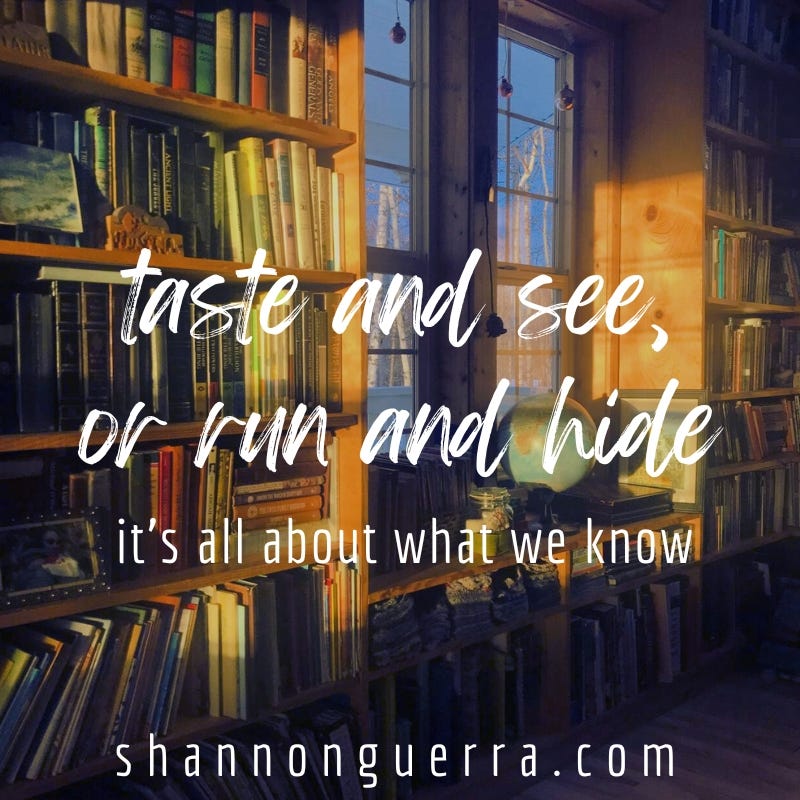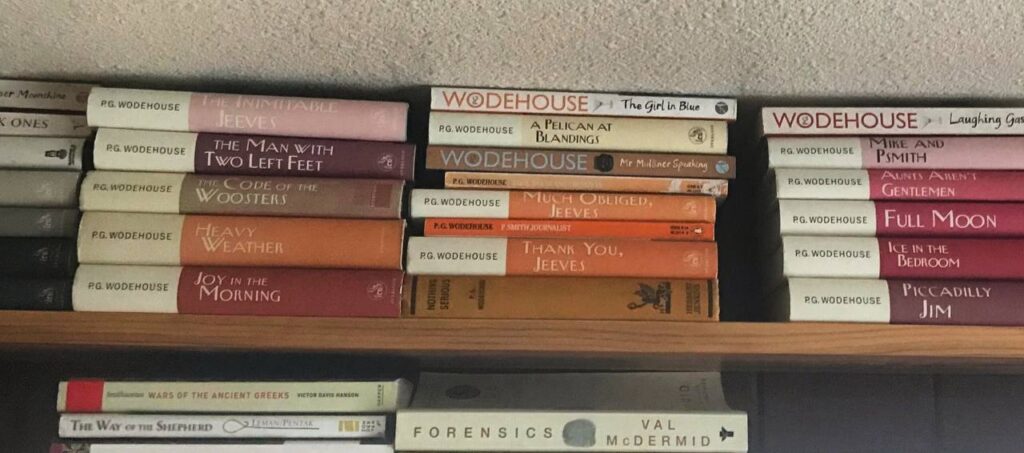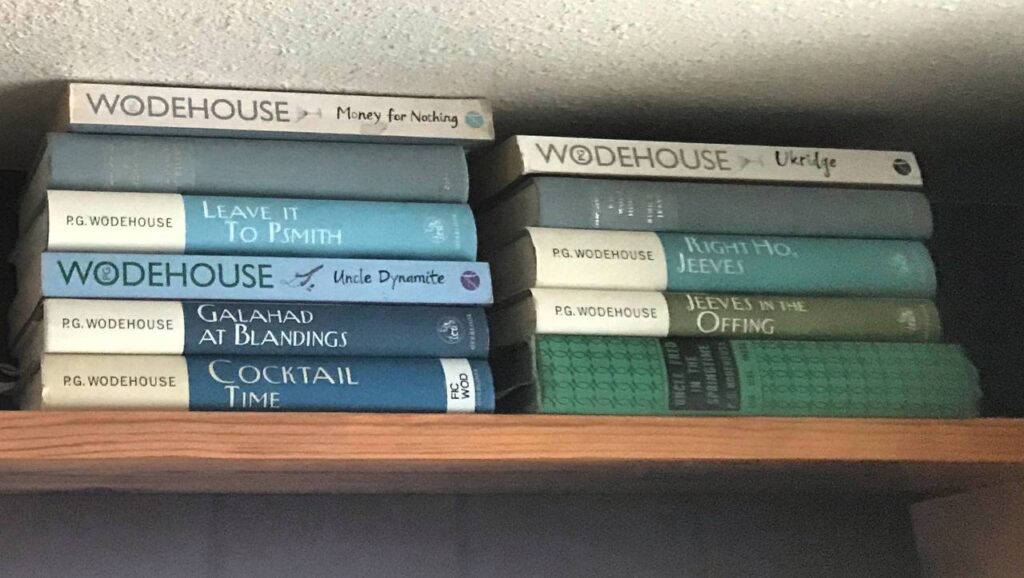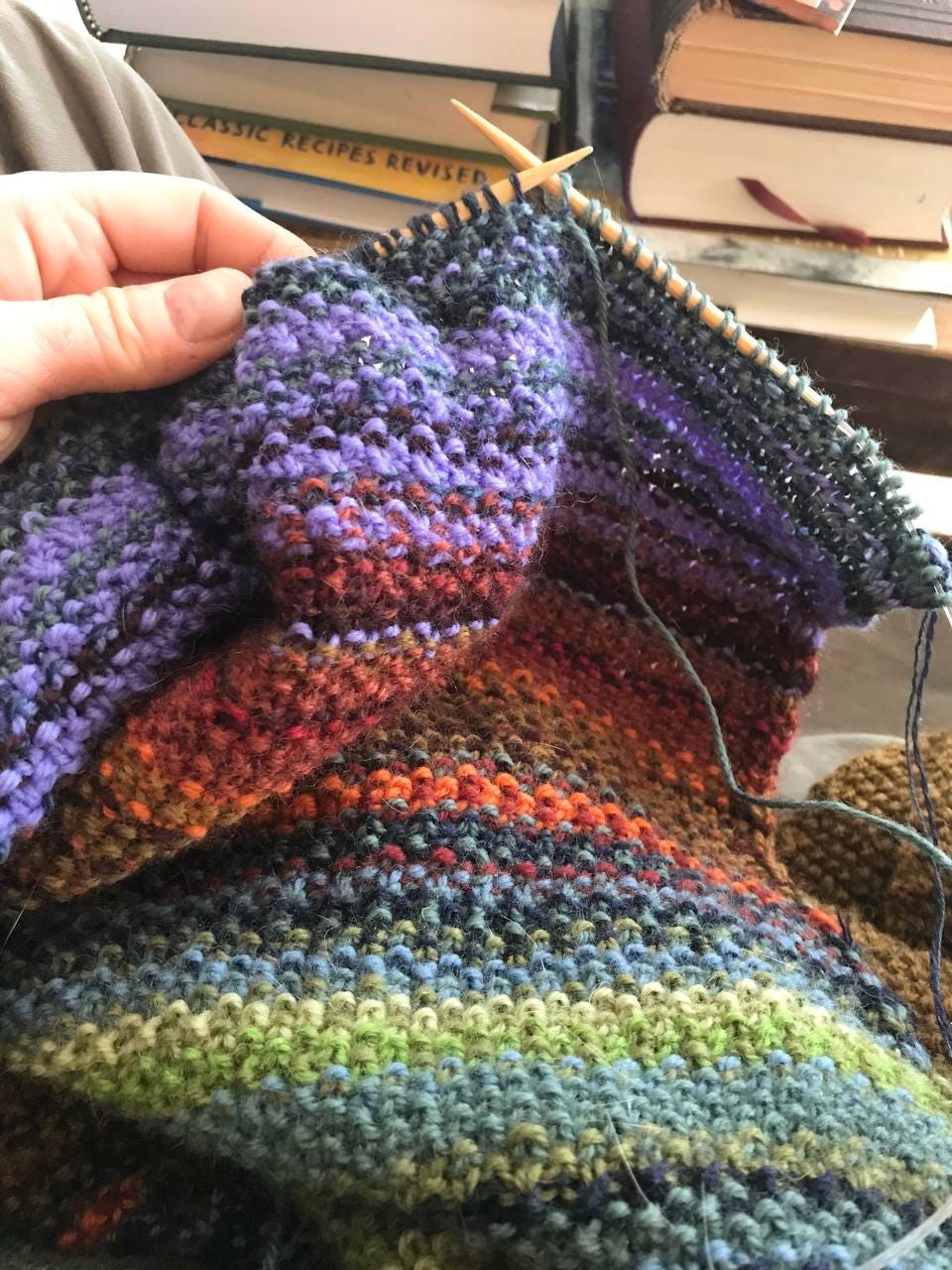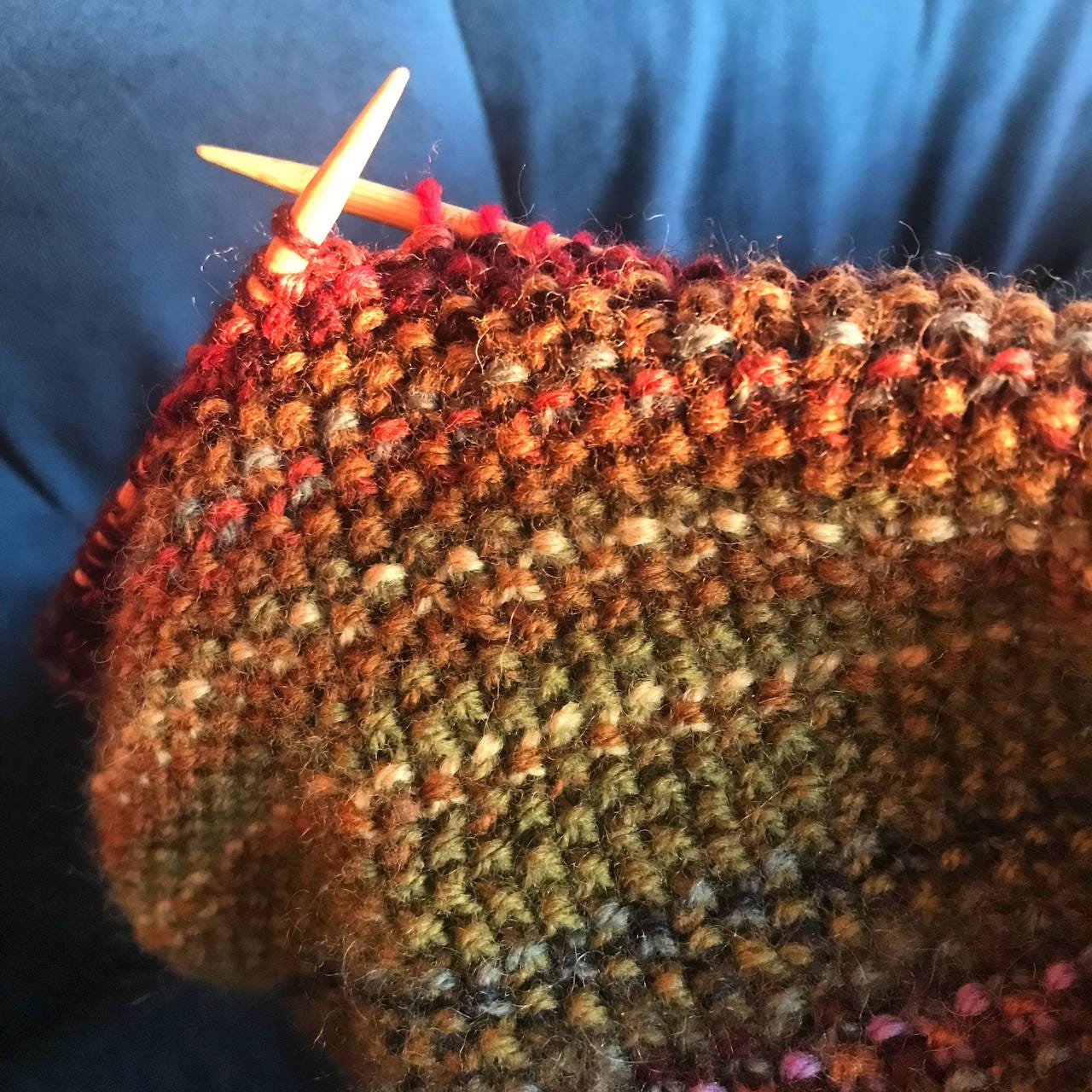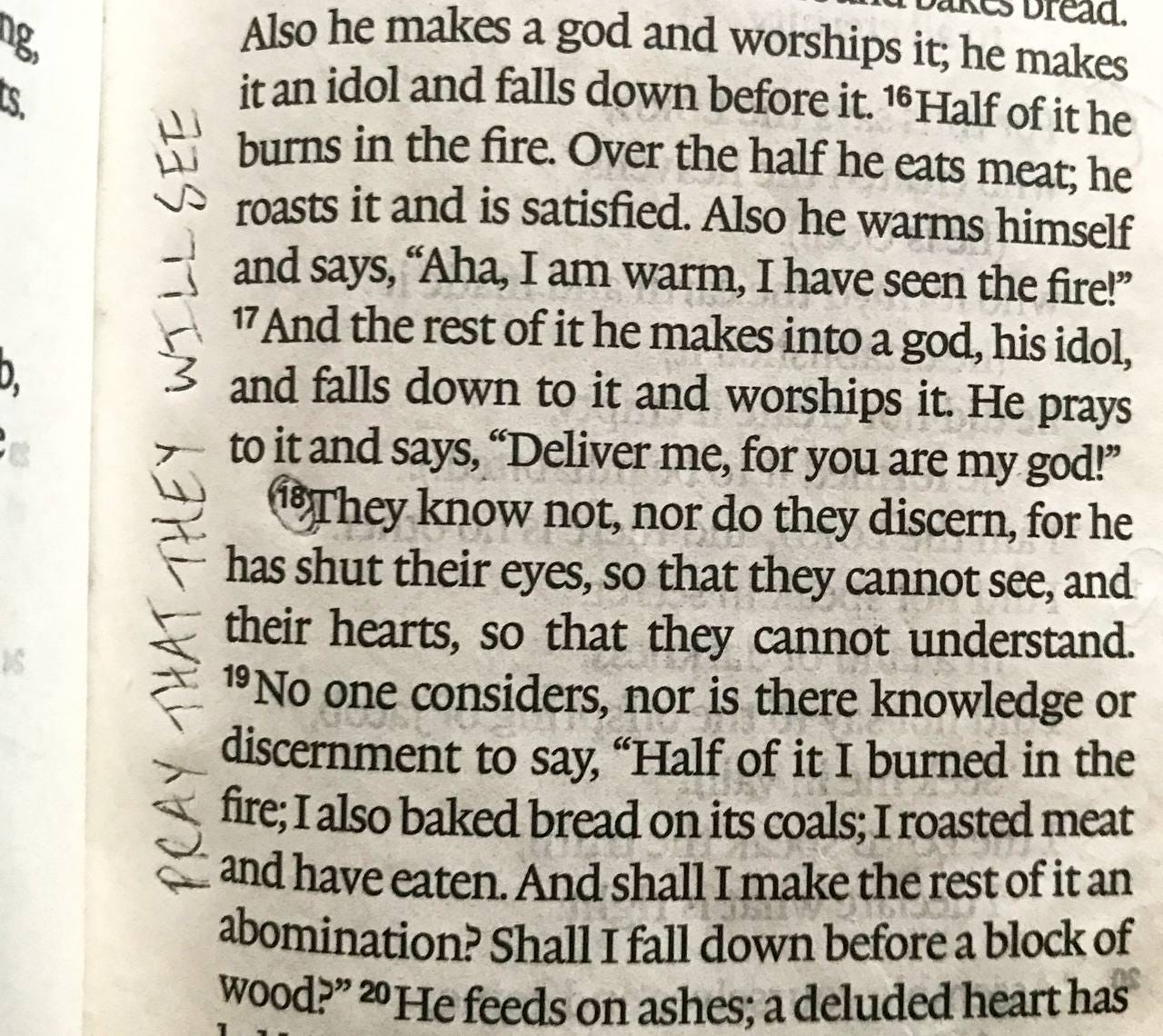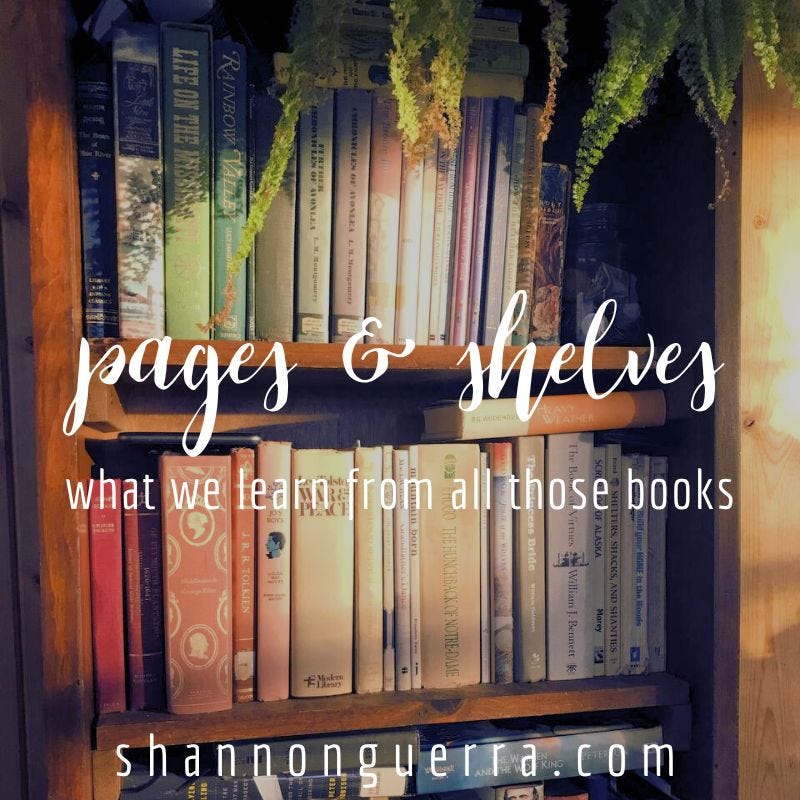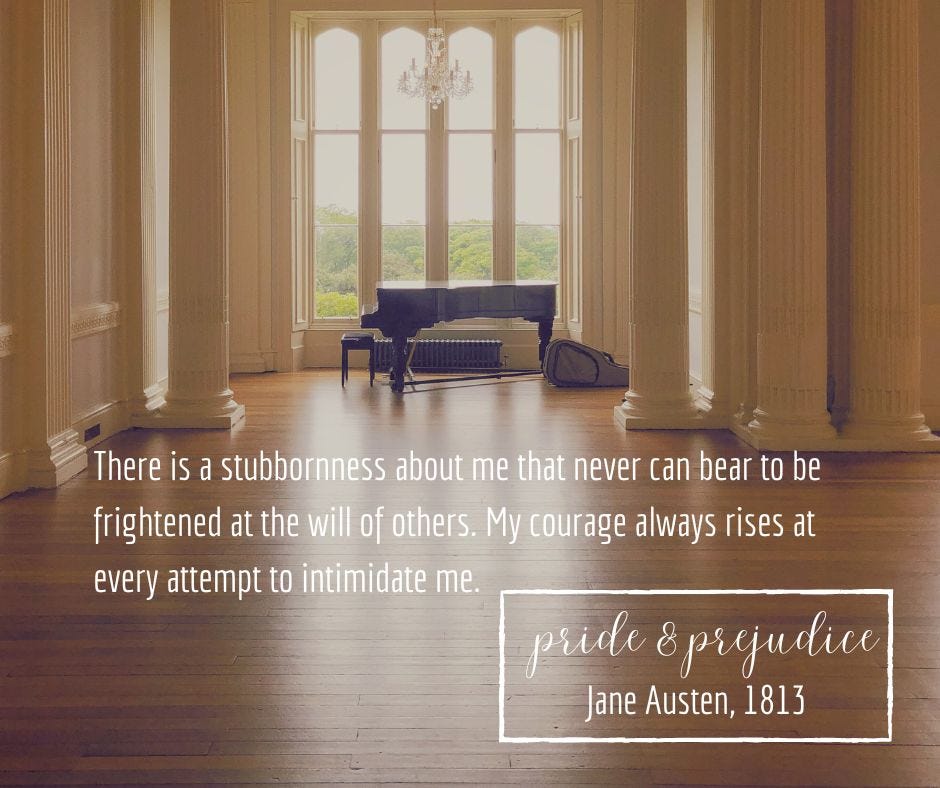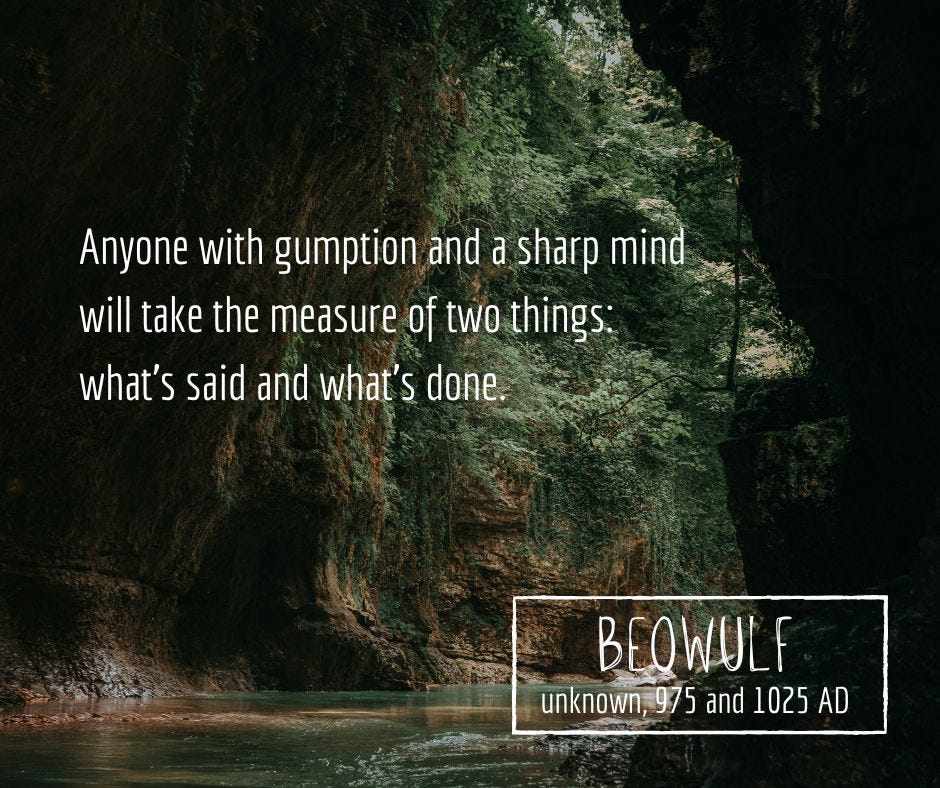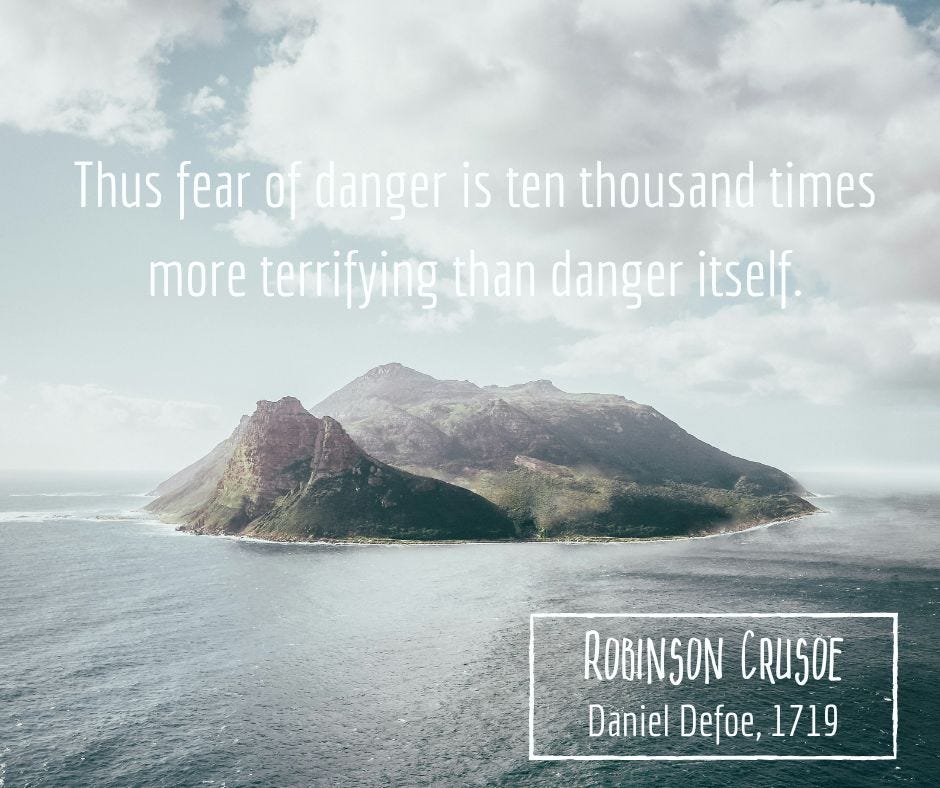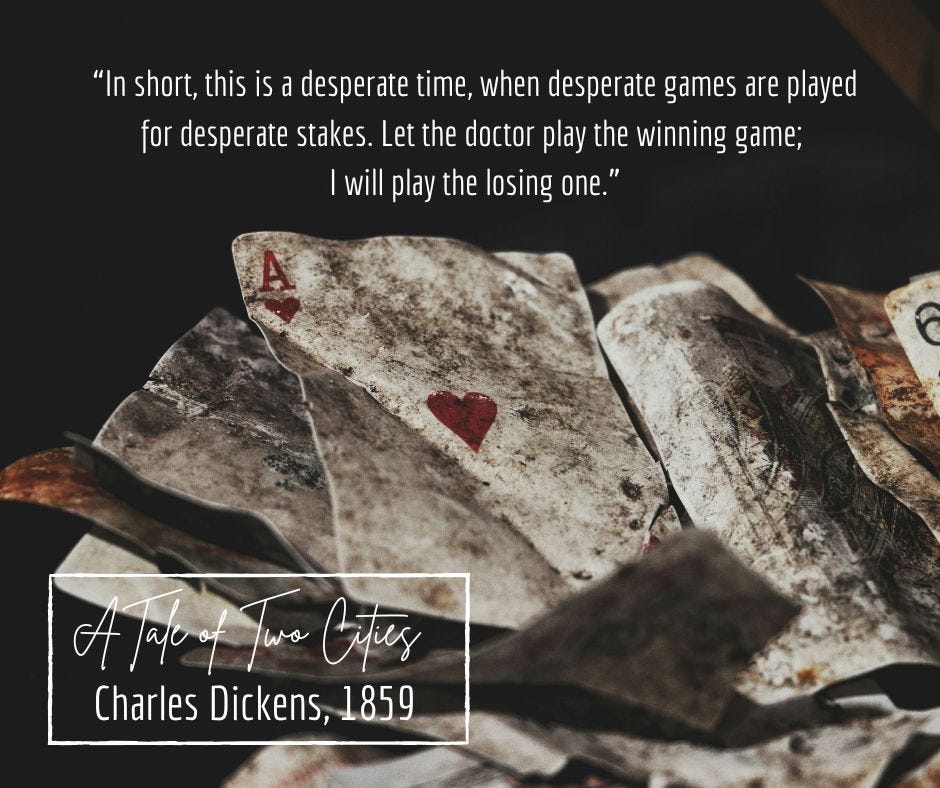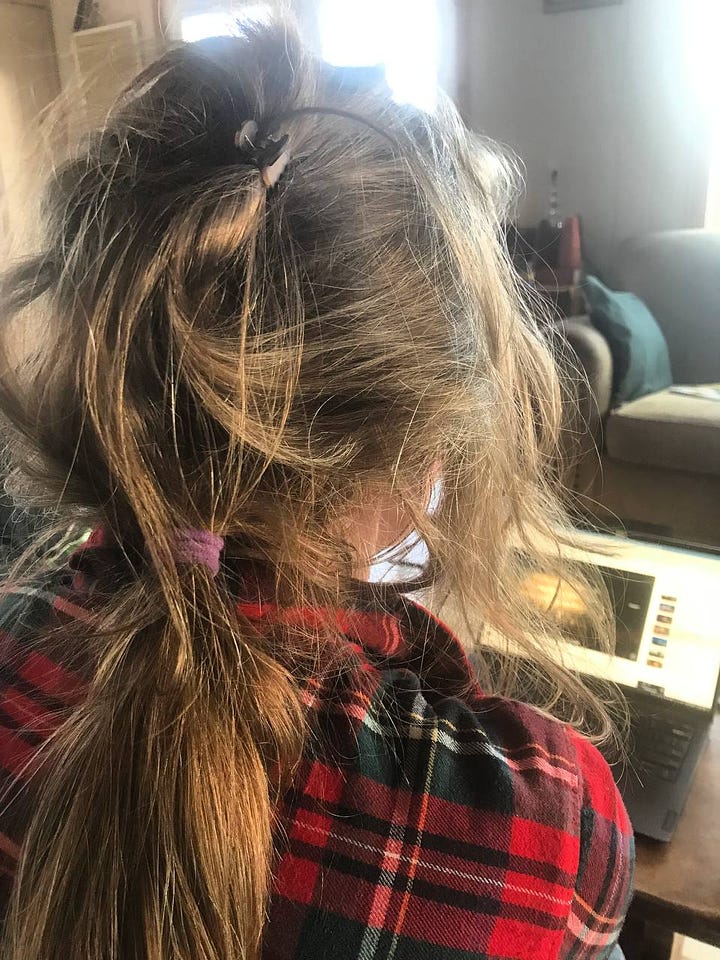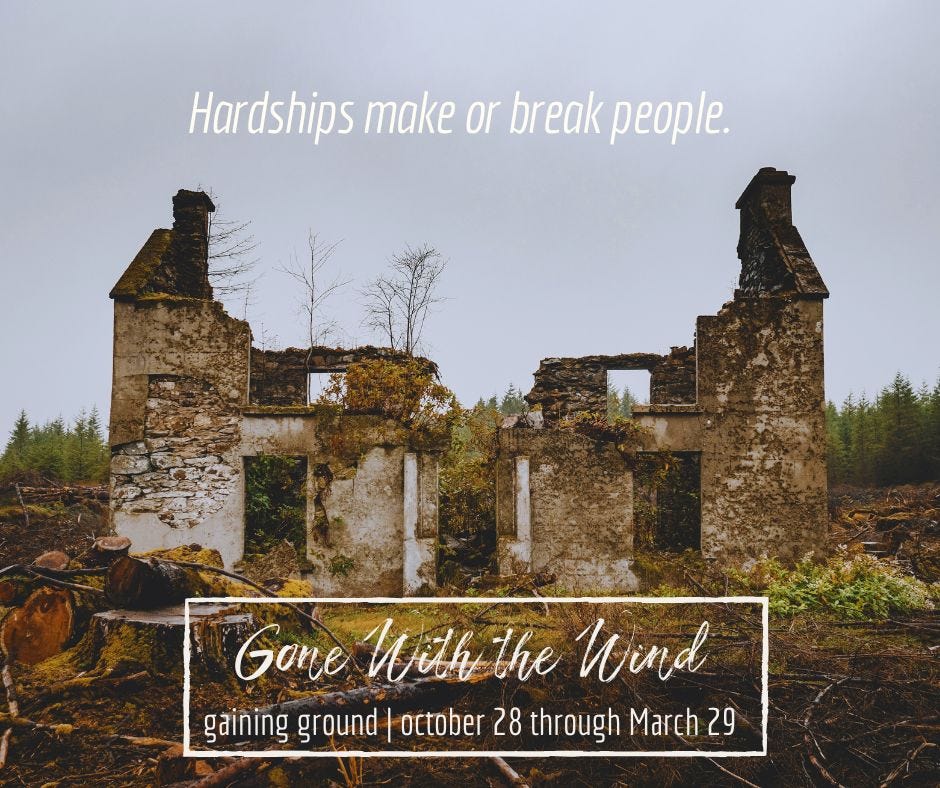We take a school break every Christmas: no assignments, no schedule, no charts.
So this year, in lieu of all that, we completed six or seven puzzles, painted, and listened to The Story of the World in audio during car rides. The kids played hours of old-school GeoSafari, thinking it was the coolest thing ever. (It kind of is.) One kid fell in love with the audio version of Our Island Story, and another made new calendars for 2025. I roped another into helping me redo our planner for this year, making it her first foray into graphic design. We played Ticket to Ride, Monopoly, and several other games, and even learned a little about the Himeji Castle in Japan, thanks to a ginormous Lego project.
But no, we didn’t do school at all. Feel free to snicker with us.

So learning is more than reading books…but also, it is definitely reading books. And here are my favorites from 2024. (Here are my previous lists from 2023, 2022, and 2021.)
This year they’re all novels on the classic side. So, sorry if you prefer non-fiction – I did read non-fiction last year, but apparently none of them stood out enough to be added to this list – but hopefully you’ll find something here worth trying. I think they all are; I’ve read most of them more than once.
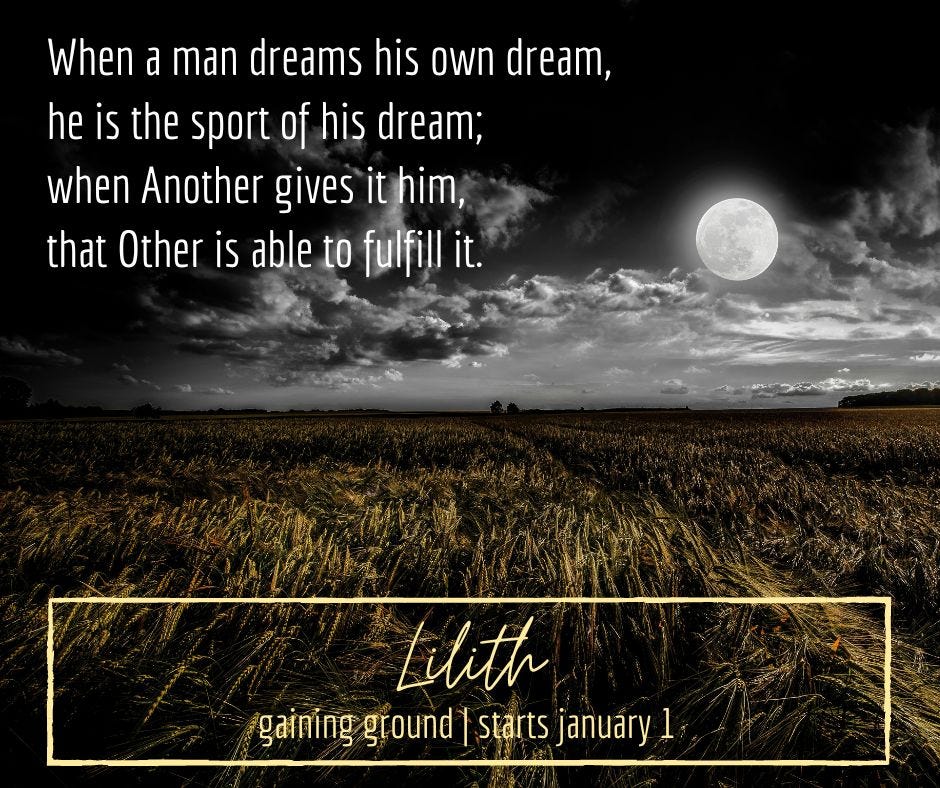
Lilith by George MacDonald
Have I talked your ear off about this one yet? This was our first book of the year in Gaining Ground and I quoted it heavily in one of my favorite posts here, but also in this one here, and wrote posts about it for Gaining Ground here and here, AND used the above quote as the epigraph in Risk the Ocean because it basically summarizes that part of our life. So suffice it to say that Lilith is profound, thought provoking, and disturbing in the best of ways. Not disturbing-and-repulsive-but-important like 1984, but disturbing in the sense that it stirs stagnant waters and brings things to the surface that need to be looked at and considered. It’s fantasy, strange and beautiful.
The Count of Monte Cristo by Alexandre Dumas
Long. You need to either read this one steadily, or take notes, or lean heavily on internet resources to map out characters and relationships like I did because there are intertwinings and disguises and previous liasons and all sorts of drama to keep track of. This is a story of betrayal, selfishness, justice, and revenge…um, there’s a bit of mercy, but no, it’s mostly revenge…and even though it’s so long, it’s worth it. Not everything works out perfectly and that’s sort of what I loved about it, because even amid all the larger-than-life aspects of the story, there’s a realness that reminds us we’re meant to overcome even when life is messy and regrettable things happen.
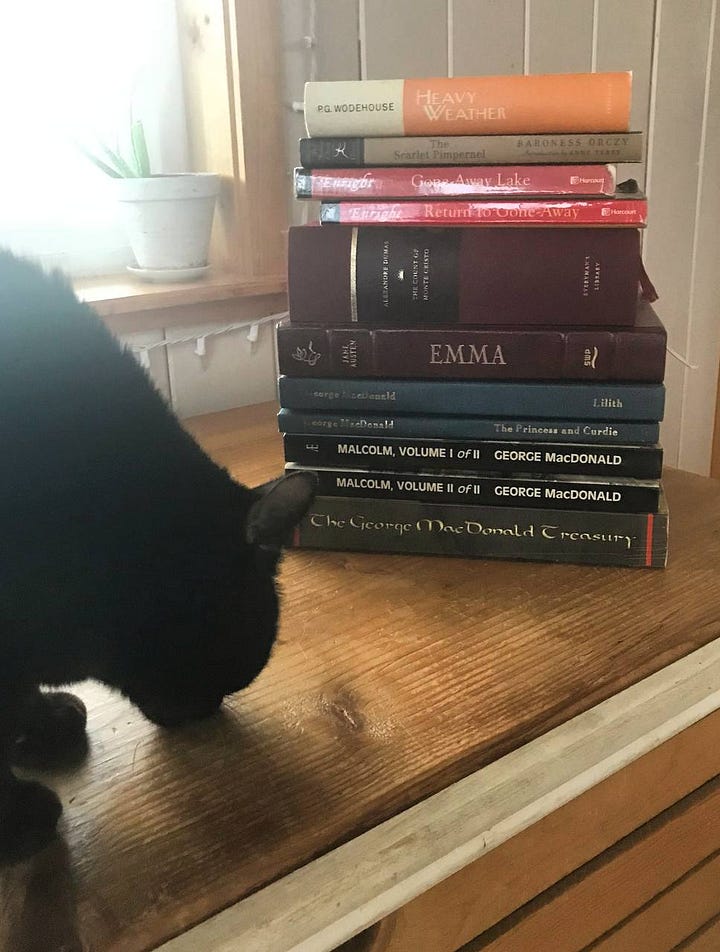
The Princess and the Goblin and The Princess and Curdie by George MacDonald
I read these to the kids for school this year, and as soon as we were done, Finn loved them so much he wanted Vin to re-read them to him at bedtime. And I was so encouraged by that because these are rich stories with complex language, but they’re so fun and fascinating that it kept them interested. They are fairy tale-ish fantasy, and the second book, The Princess and Curdie, starts a little slower (for kids) with some narrative description but the imagery is so symbolic and eloquent that it speaks volumes to adults; that message might go right over the kids but I’ve read it three or four times and love it every time, and it picks up fast after that. The chapters are really short so that helps the pace, too.
Curdie and his father were of these: their business was to bring to light hidden things; they sought silver in the rock and found it, and carried it out.
– George MacDonald, The Princess and Curdie
The Scarlet Pimpernel by Emma Orczy
A hurting marriage, a messy past, and an unidentified brilliant hero helping people escape during the French revolution. We read this in Gaining Ground and it was a perfect follow up to A Tale of Two Cities – it’s lighter, funnier, and covers the same era from a different perspective. This was the second time I’ve read it and one or two of the plot twists still surprised me.
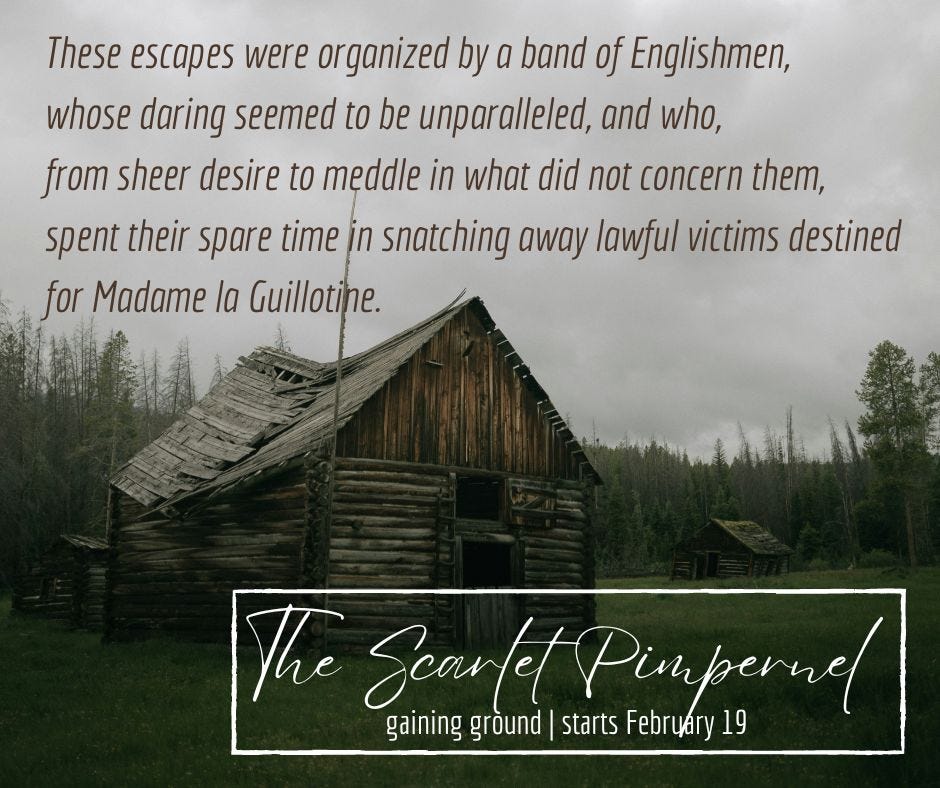
Emma by Jane Austen
I didn’t really like this book the first time I read it because I don’t like books whose main character is annoying, obnoxious, or presumptuous. And Emma is…well, she’s a gentle version of those things: pampered, wealthy, revered more than she deserves. But this time around I noticed that Emma wasn’t really selfish, she was just immature. And in her immaturity she didn’t realize how arrogant, overbearing, and manipulative she was – but upon maturing (and it’s not an instant process) she grieves and repents. We could use more of this.
Malcolm by George MacDonald
Some years you just plow through a bunch of books by the same author, and this was the year of George MacDonald for me – not on purpose though, it just worked out that way with homeschool and Gaining Ground schedules colliding. But I chose this book myself, and it was hard to get into because of all the Scottish – and by Scottish, I mean dialect and vocabulary. But the spiritual principles in it were so good, the story so pure (not perfect, but pure), that it was worth it. Plus, now I know what words like gien, lugs, een, and lippen mean (if, ears, eyes, and trust, respectively).
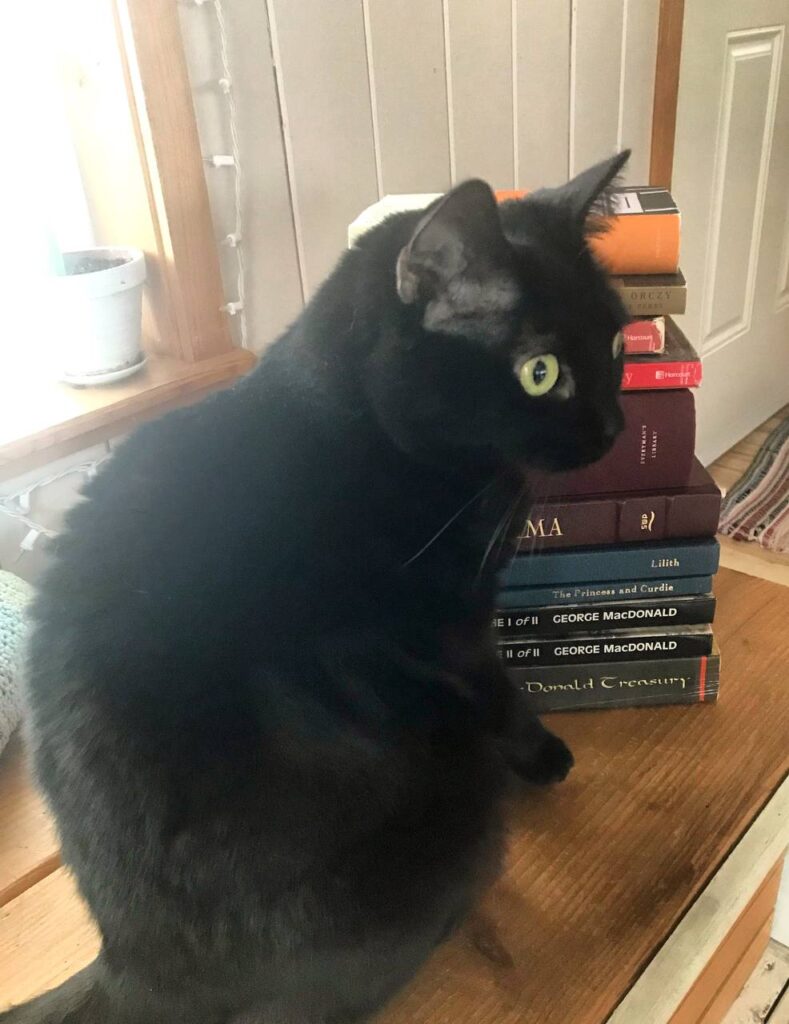
Gone Away Lake and Return to Gone Away by Elizabeth Enright
Two kids wander the woods during summer vacation and stumble upon an empty, abandoned town…or is it? We had so much fun reading these last summer that we named one of our new chicks Minnehaha. (That will make more sense when you read the book, I promise.) I first read these to our older kids about 12-15 years ago, so this was the first time our younger crew encountered them, and just like with The Princess and the Goblin books, as soon as we finished, Finn immediately dove back into them as bedtime reading. Return to Gone Away is actually my favorite – if you’ve ever dreamed of finding an old, old house and restoring it, you’ll love it too.
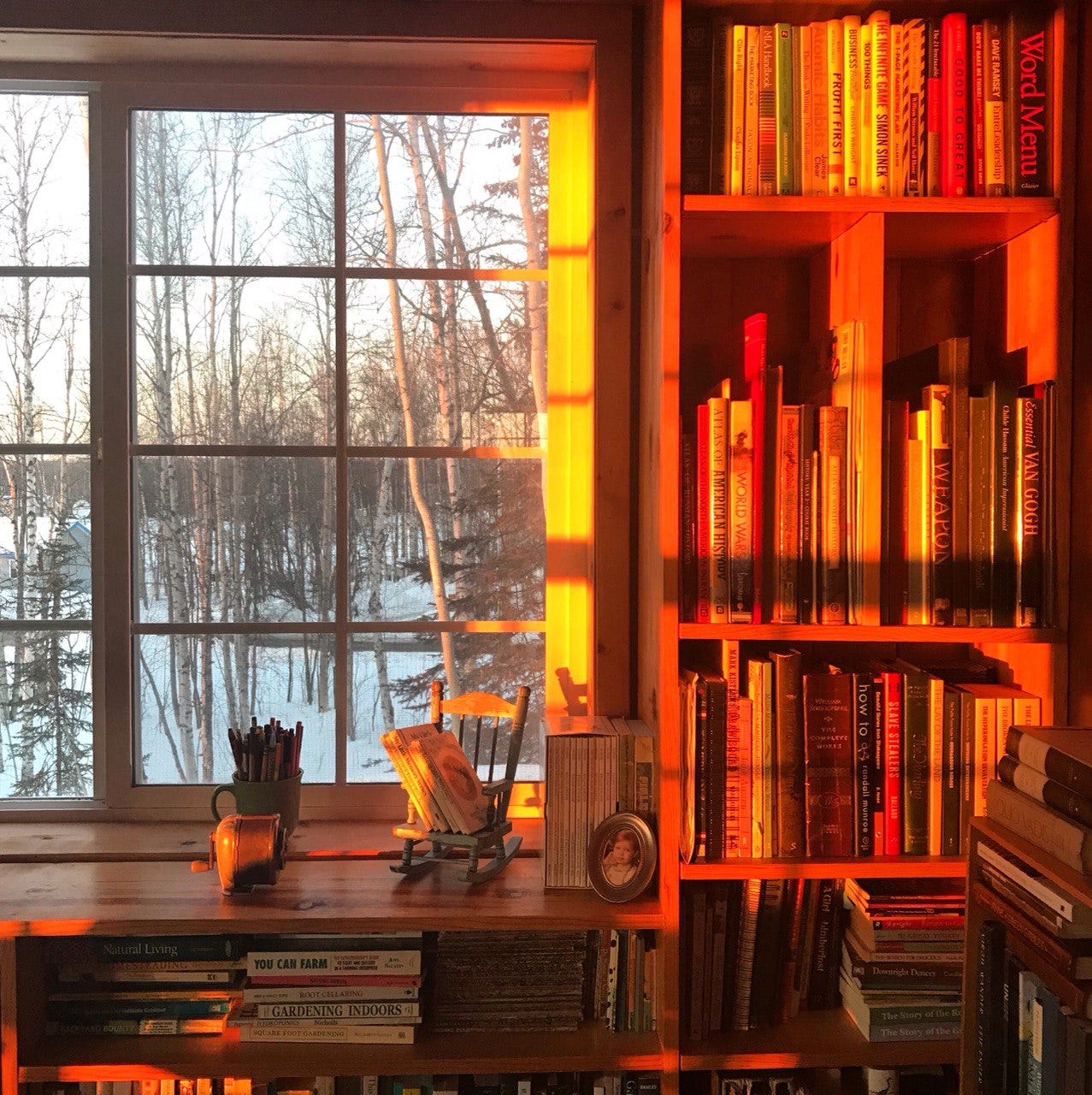
Heavy Weather by P.G. Wodehouse
I raved about Wodehouse in this post and it’s this book’s fault. Sir Galahad is publishing his scandalous memoirs – but then he isn’t – but someone else wants them published – but several others don’t – and mayhem ensues with multiple plots afoot. Wheels within wheels, you know…SO FUNNY. No one does dialogue like Wodehouse.
The Little White Horse by Elizabeth Goudge
Another one I read to the kids. If you’re not familiar with Elizabeth Goudge, her writing is beautiful, cozy, atmospheric – the kind you curl up into, like a virtual blanket and tea. In spite of the title, the book is not about horses – or even a particular horse, really – but about a girl who goes to live in her uncle’s castle, which is her family’s ancestral home. The characters, human and animal, are fun and intriguing and not all what they seem to be.
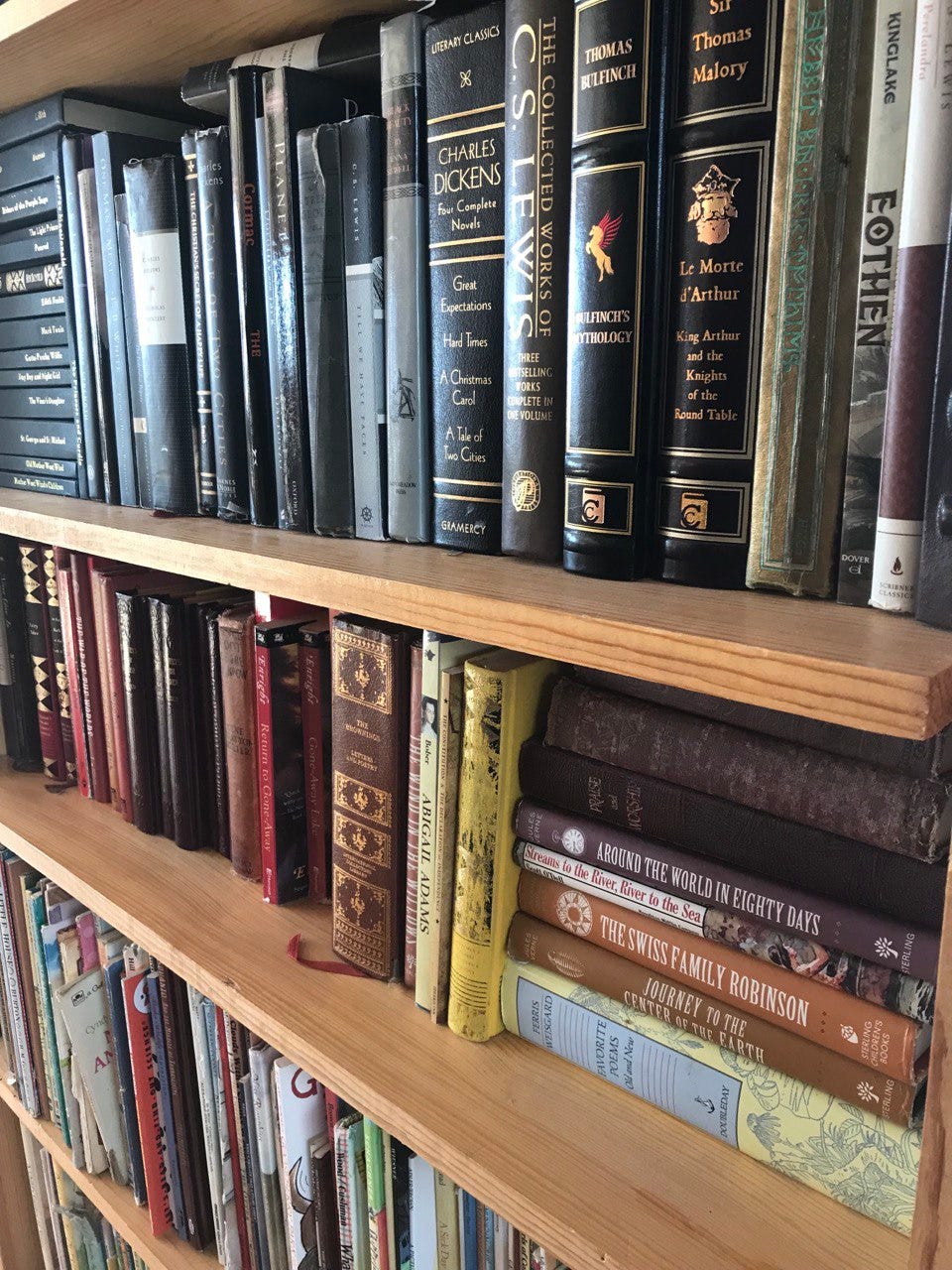
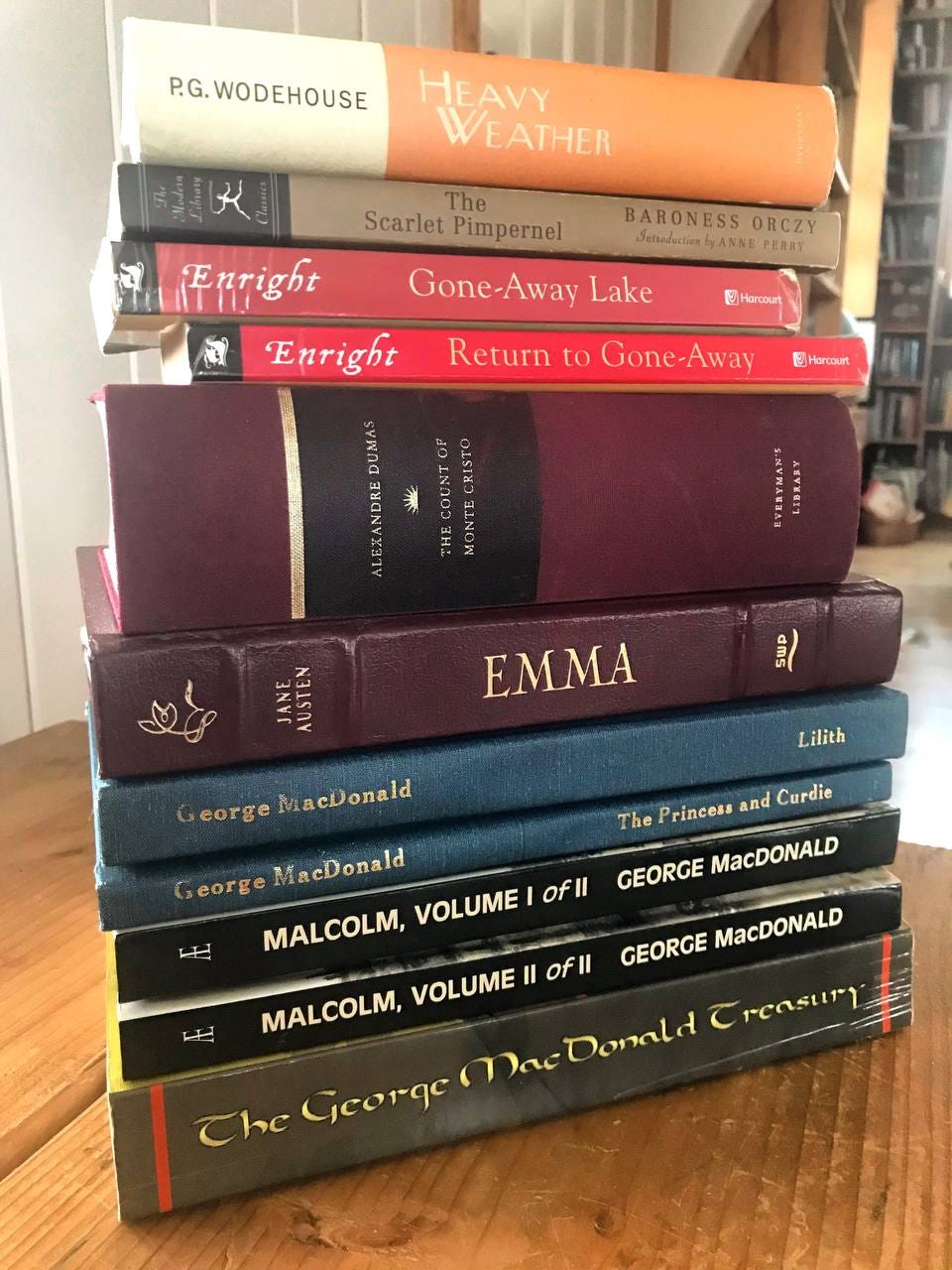
So there’s the list. But hey, lastly, want to join us at Gaining Ground for more great books? We’re currently in the middle of Gone With the Wind (I really want this tshirt) but we’ll be starting Ivanhoe by Sir Walter Scott in March and we’d love for you to join us either on Substack or Telegram for it…since it will probably achieve a spot on next year’s Best Books list.

